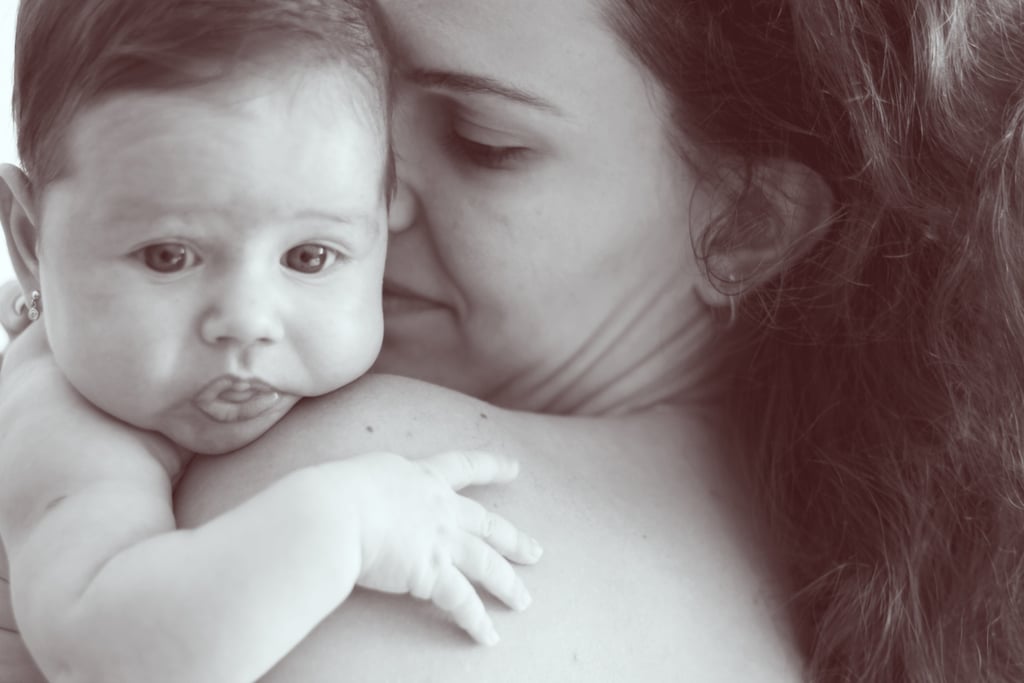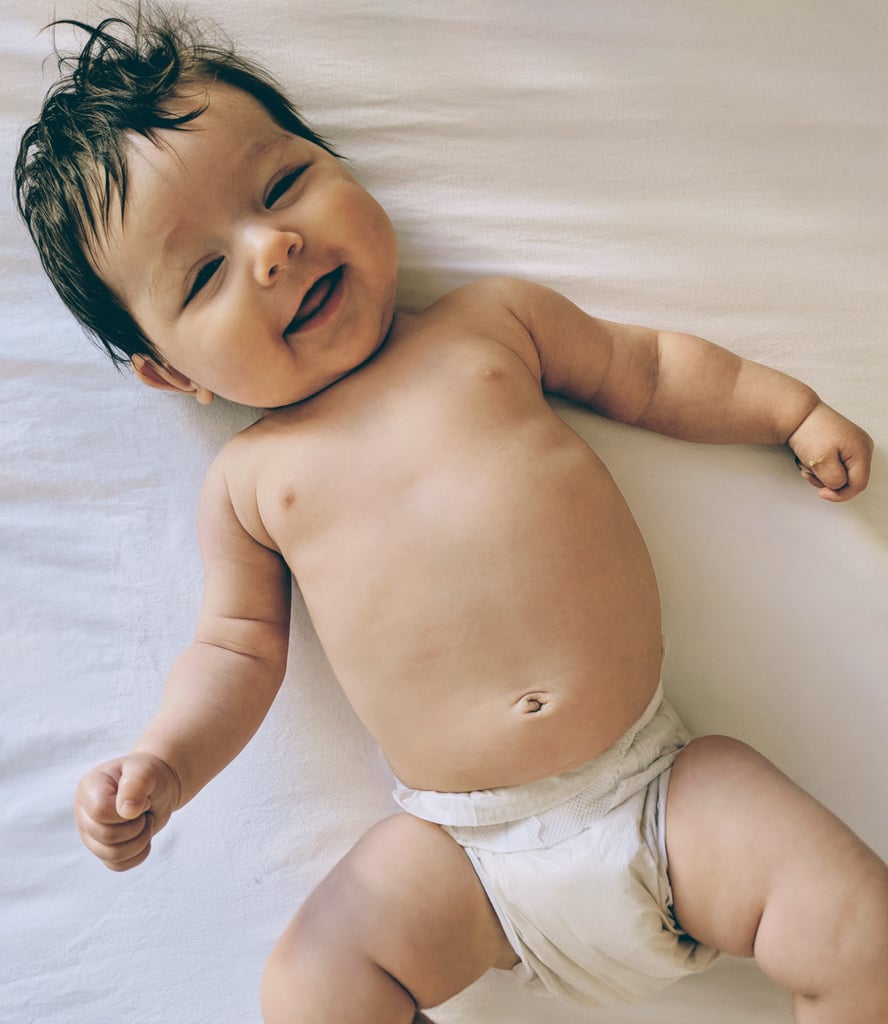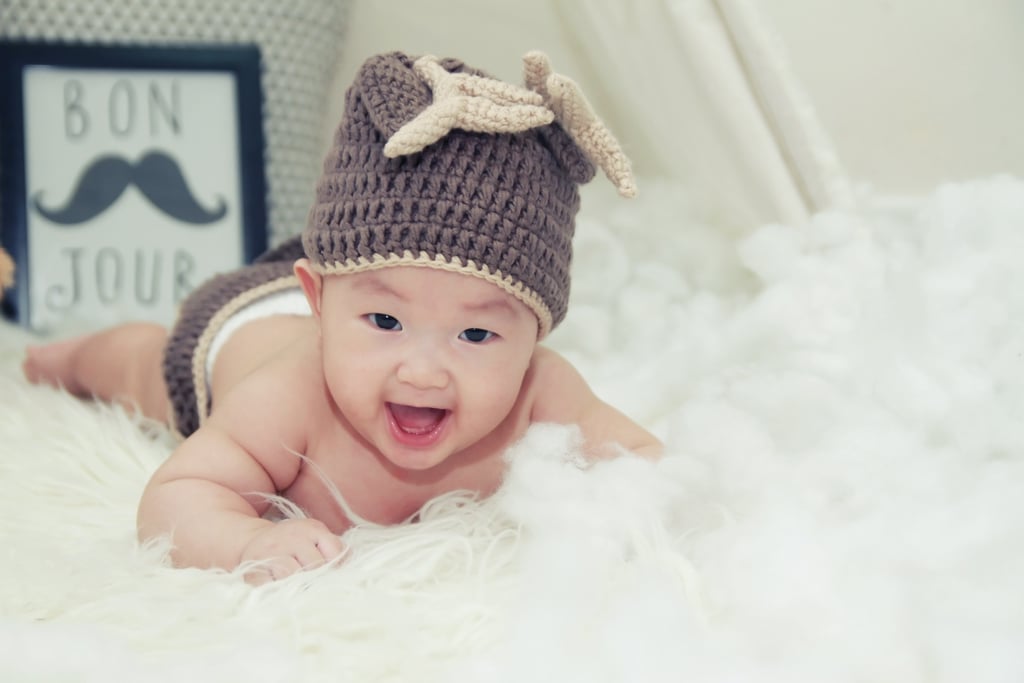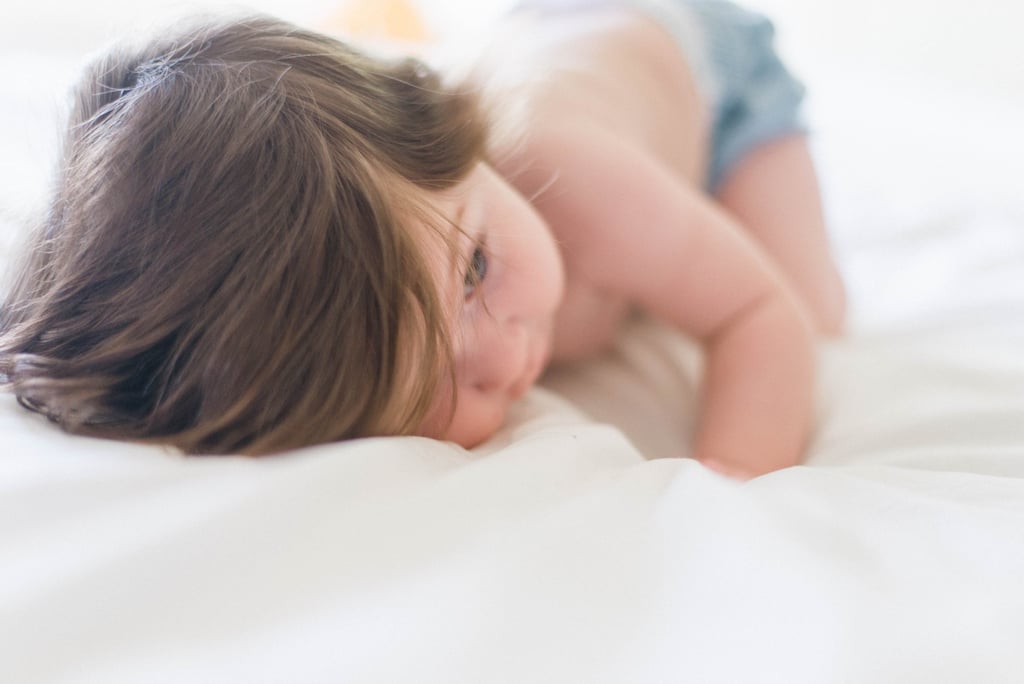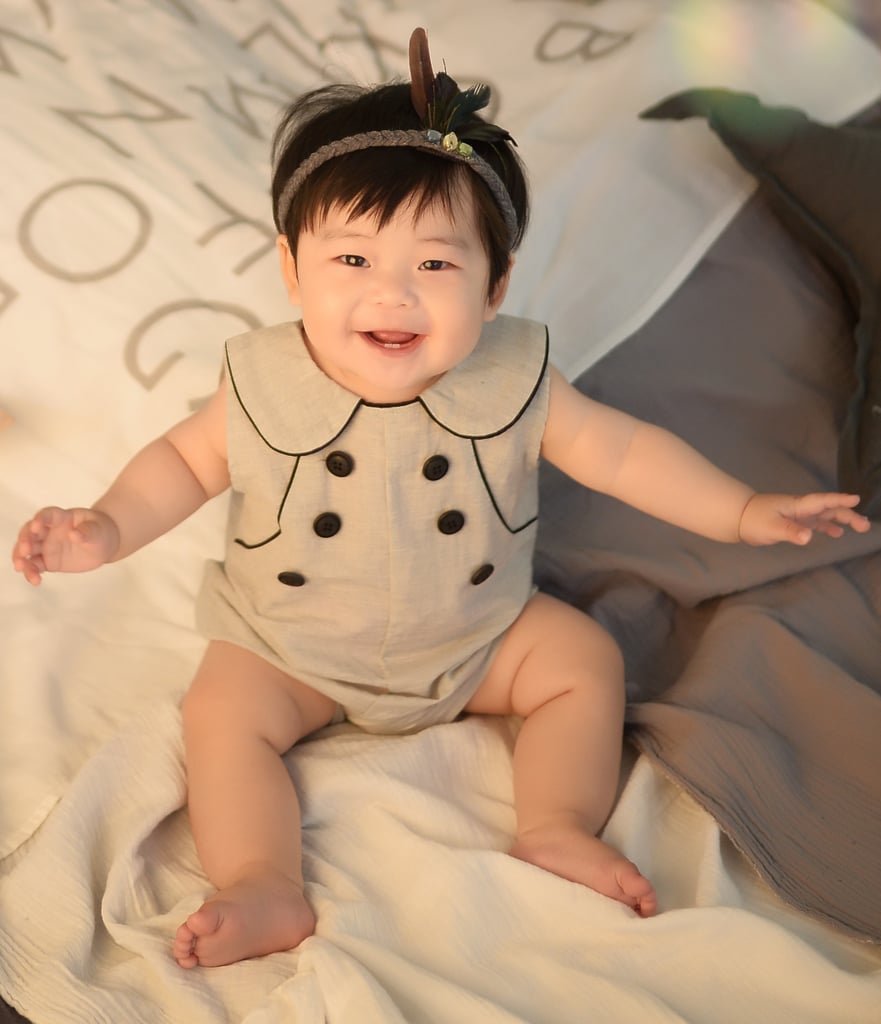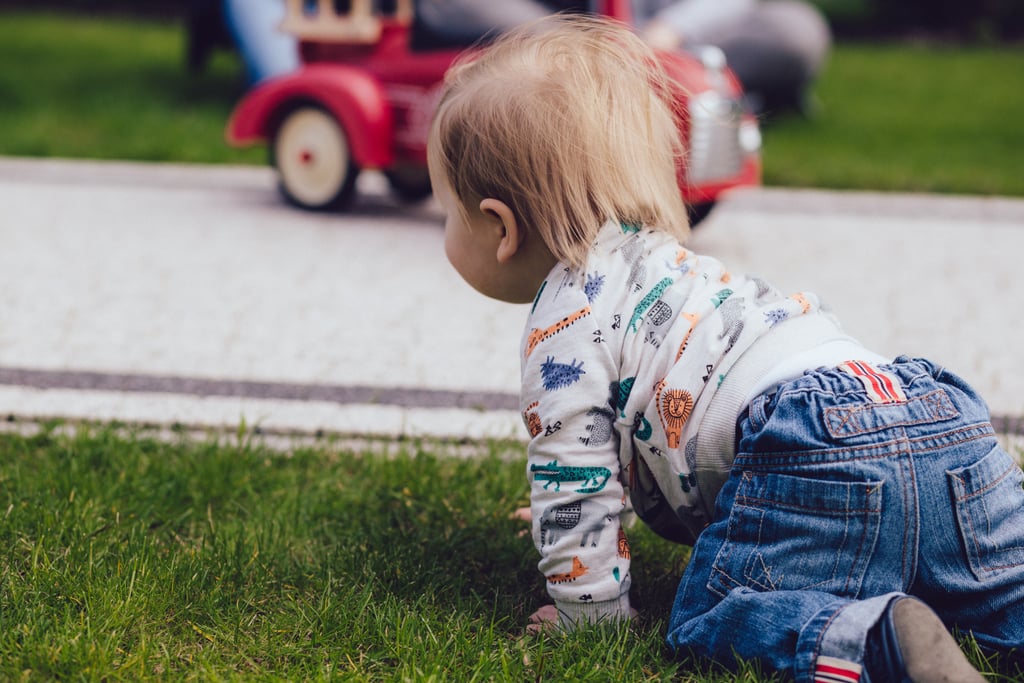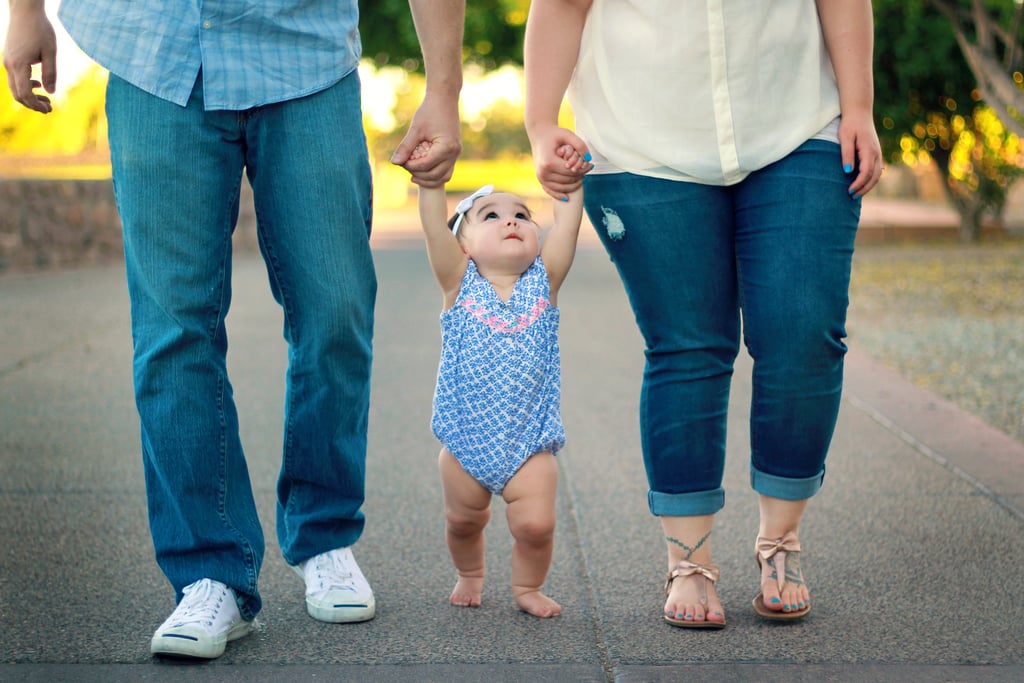Six weeks after giving birth, I finally got a smile from my newborn baby girl. For over a month, I lived in an endless cycle of feedings, diaper changes, and power naps [1]. The smile jolted me out of my stupor, and I finally felt like, hey, this parenting thing could be fun.
I'll also admit I felt a sense of relief. This "social smile" (as opposed to a reflexive milk-drunk smile) is an important milestone for newborns. Subconsciously, I had worried that she wouldn't meet the mark. Knowing that many more milestones lay on the horizon, I told myself that I needed to change my attitude. So long as my daughter's pediatrician said everything was on track, I shouldn't pay too much attention to how she progressed. Instead, I should look at lists of recommended milestone as something to look forward. Each month, I would check out a list to see what exciting new "trick" my daughter would learn. And I wouldn't worry too much if it took her a little longer.
"Most children are normal and will thrive in a loving, happy home."
Dr. Robin Jacobson [2], a pediatrician at NYU Langone Pediatric Associates, said that's a healthy approach. "The best source of developmental milestones is your pediatrician," she told me. Dr. Jacobson admitted that it can be scary for a parent when you see a child younger than yours speaking or walking better. But, she said, parents must remember all children are different. "Parents hear a lot about autism [3] and developmental delay," she told me, "but most children are normal and will thrive in a loving, happy home."
Even if you have a laid-back attitude about your child's development, it's still nice to know when you can expect a new advancement. So Dr. Jacobson helped break down the most exciting milestones that happen in the first year of life. Read on for her insight.
Newborn: Turning Heads
While your new baby can't do much, they actually are more than an eating and pooping machine."Developmentally speaking, newborns can hold up their heads for a few seconds soon after birth and turn to their parents' voices," Dr. Jacobson told me.
1 Month: Social Smile
"Between four weeks and two months," Dr. Jacobson explained, "babies hold their heads up better and start to have a social smile, meaning when a parent smiles at the child, he or she will smile back." Ah, interaction!
2 Months: Holding Head Up, Cooing
"By two months of age, when the baby is laying on his belly, he should hold his head and chest up and should be cooing," Dr. Jacobson explained. Tummy time just got a lot more interesting.
4 Months: Swatting, Rolling
Ready for a little gymnast? "By four months of age, the baby should be able to hold her head, chest, and arms up when laying on the stomach," Dr. Jacobson said. "The baby should start swatting at things, kicking the baby gyms, and holding a rattle." The baby might also roll over, but not all babies roll over at four months, according to Dr. Jacobson. "When the baby sits up with support at four months of age," she continued, "the head can fall forward. Many parents place the baby in a Boppy pillow [4] or just put pillows around the baby so if she falls over, she is not injured."
6 Months: Giggling, Sitting, Babbling, and Pulling
A lot happens around the half-year mark. "Between four and six months of age, the baby is smiling, giggling, and very fun to have around," Dr. Jacobson promised. "By six months of age, the baby gets better at rolling and sitting. The baby will stay up for a few seconds when placed in a sitting position but cannot sit up by herself." In addition, she said, "the baby starts to add consonants into the vocalization such as bababa, dadada, gagaga — M sounds are a little harder so they do not usually say mamama at this age. The baby also can move things from hand to hand and have good grasp so they pull hair very well." Watch out, mom.
9 Months: Crawling and Clapping
Get ready to baby proof your home. "By nine months of age, some babies start crawling, but many never crawl and go straight to walking," Dr. Jacobson admitted. "The baby should be able to sit himself up. The baby also can start saying mama and dada, but not necessarily specific to his mom or dad all the time. The baby also should start having pincer grip so he can pick up a Cheerio with his finger and put it in his mouth. Some 9-month-old babies start clapping, giving high fives, waving bye-bye, and blowing kisses." Aw.
1 Year: Walking, Hugging, Kissing, and Communicating
Now the fun really begins! "The average age to walk is at 1 year of age, but many babies do not walk until closer to 15 months of age," Dr. Jacobson explained. "By one year, the baby should say mama and dada and maybe one other word. The baby should understand when the parent says no but not necessarily listen. The baby should be clapping, waving bye-bye, blowing kissing, giving hugs, and playing peekaboo." You've come a long way, baby.
